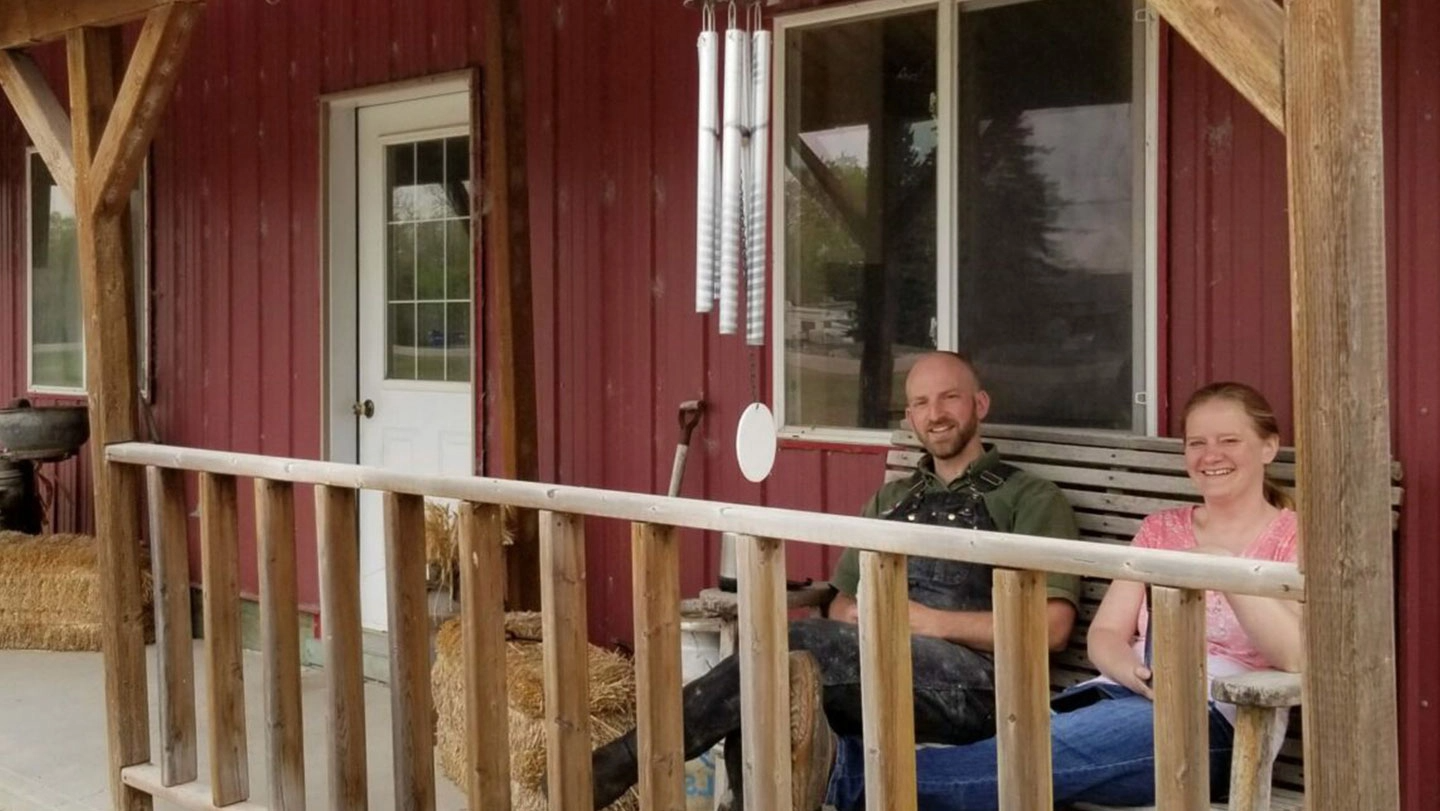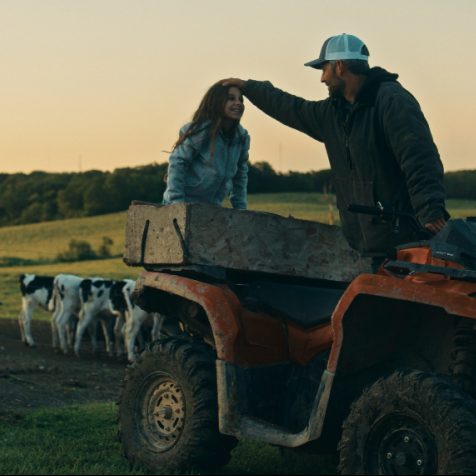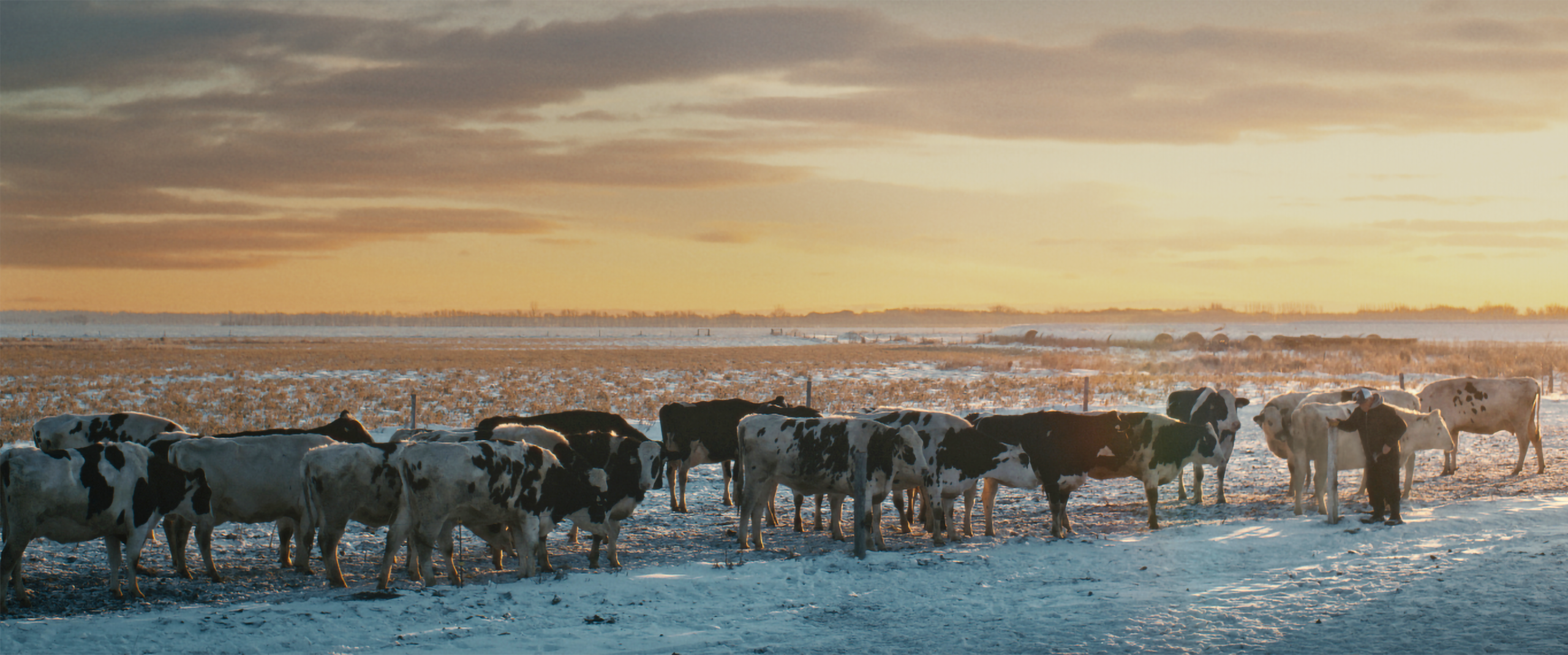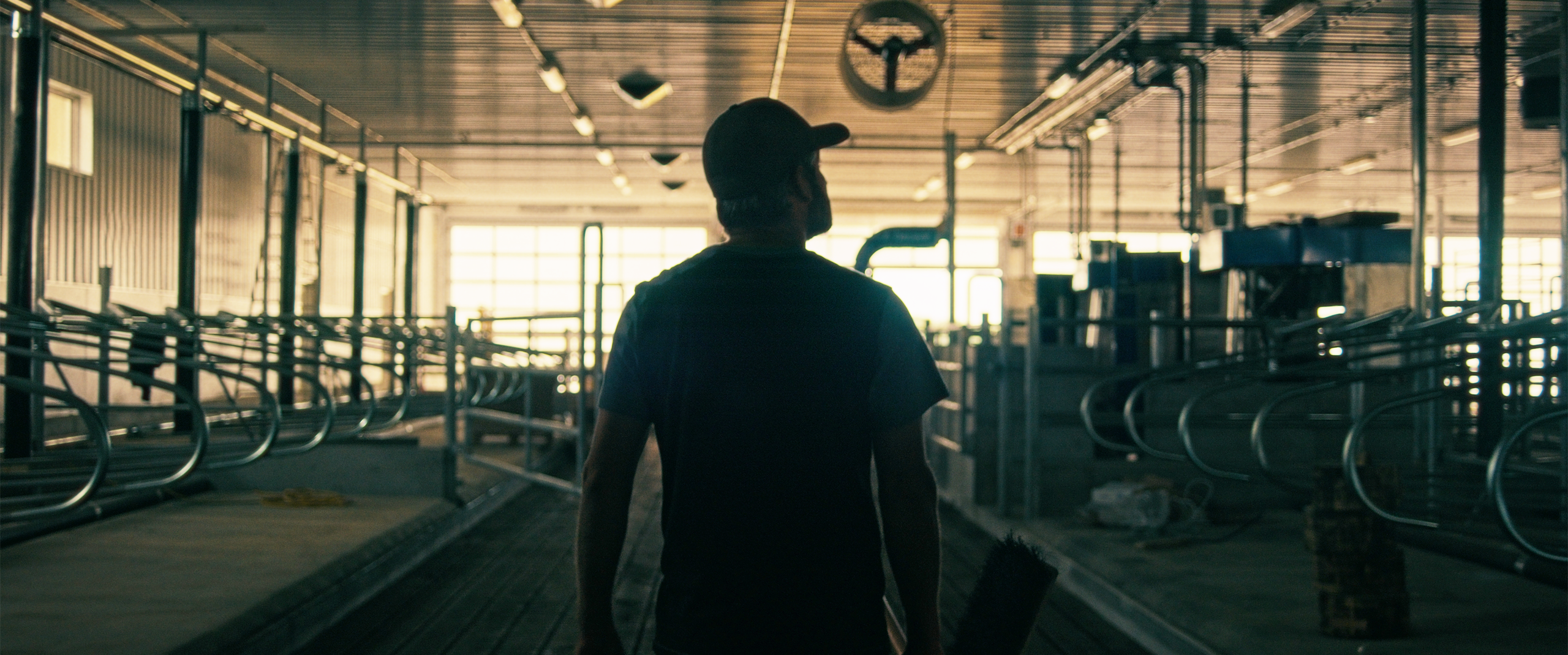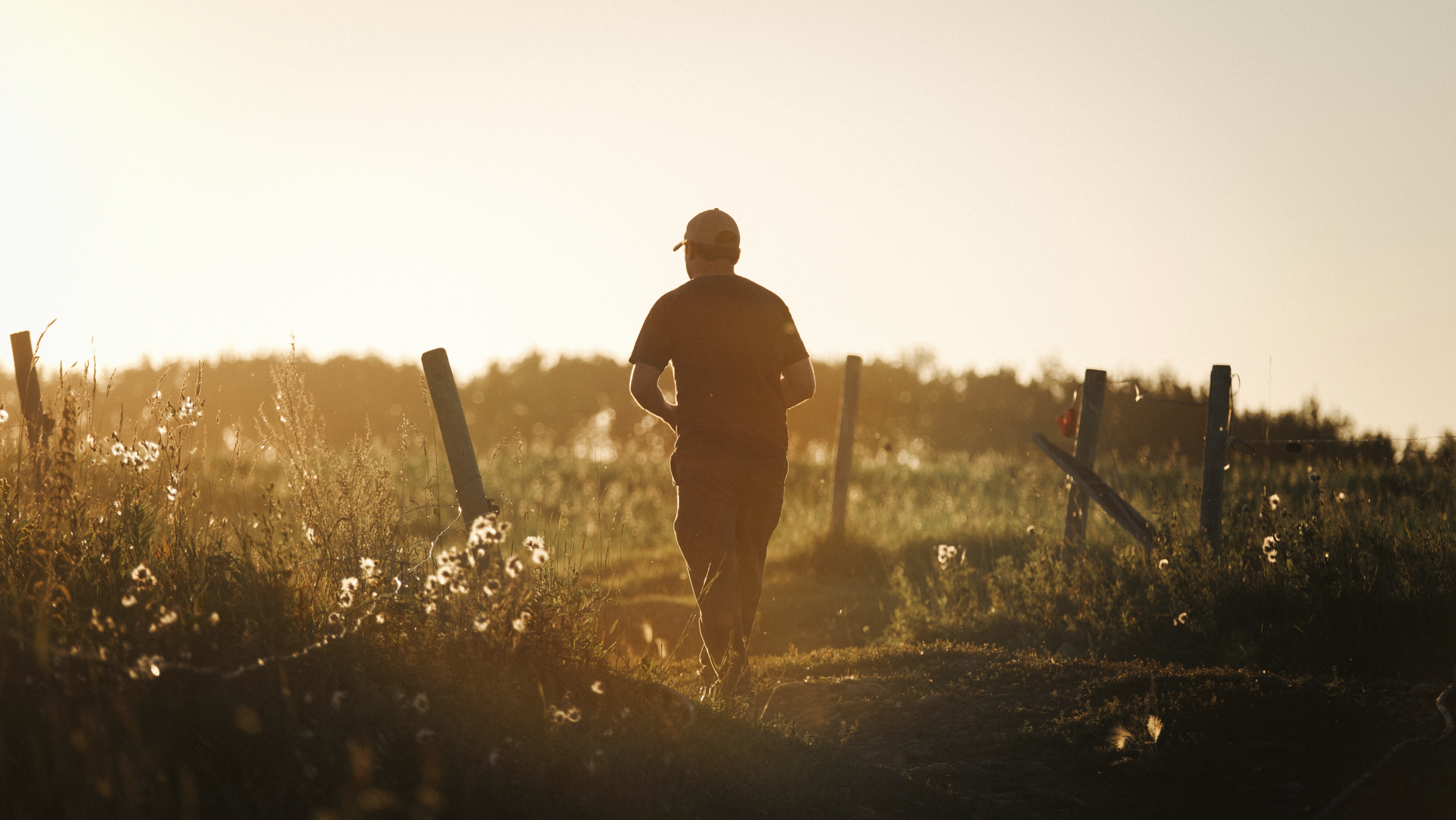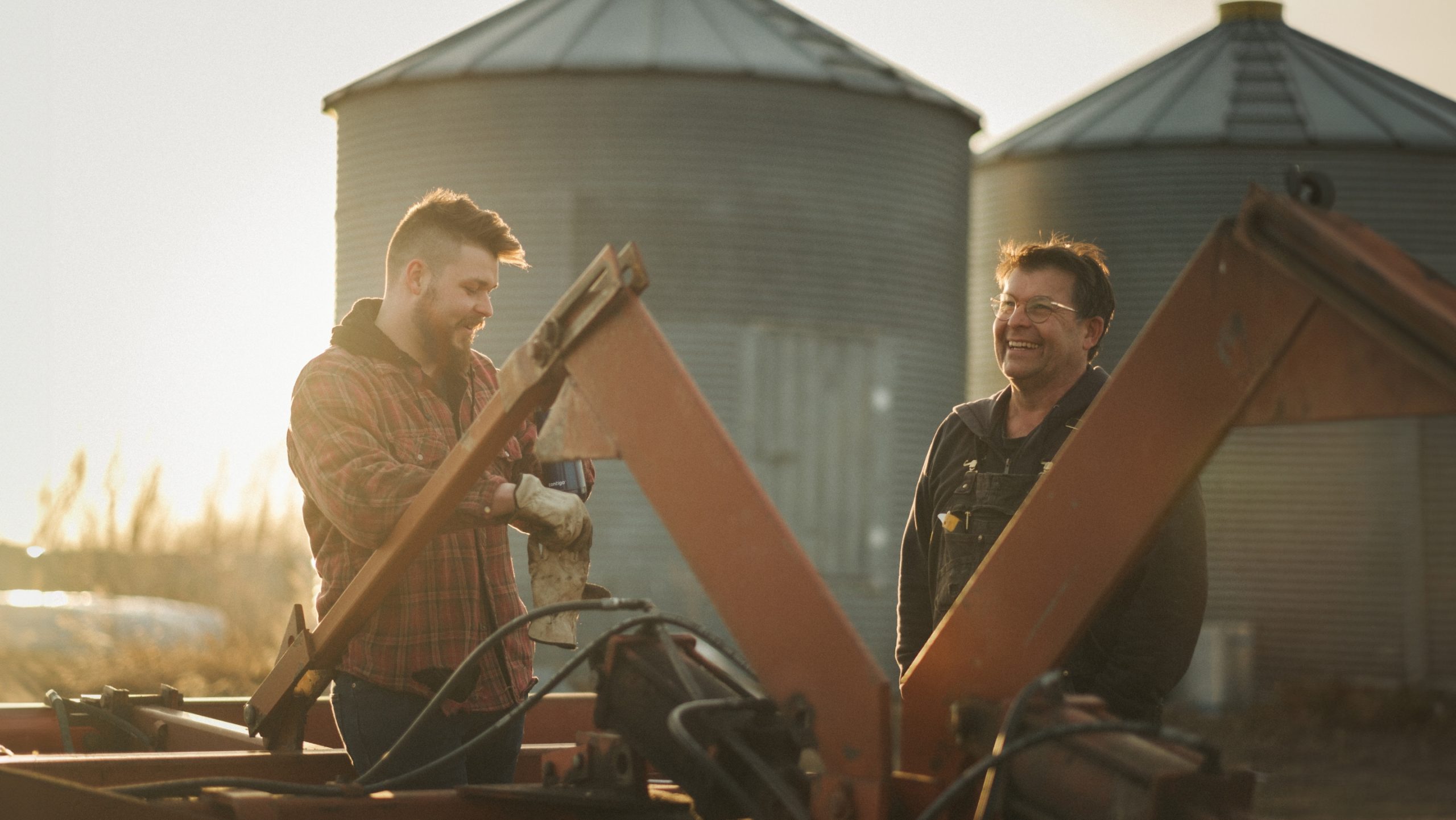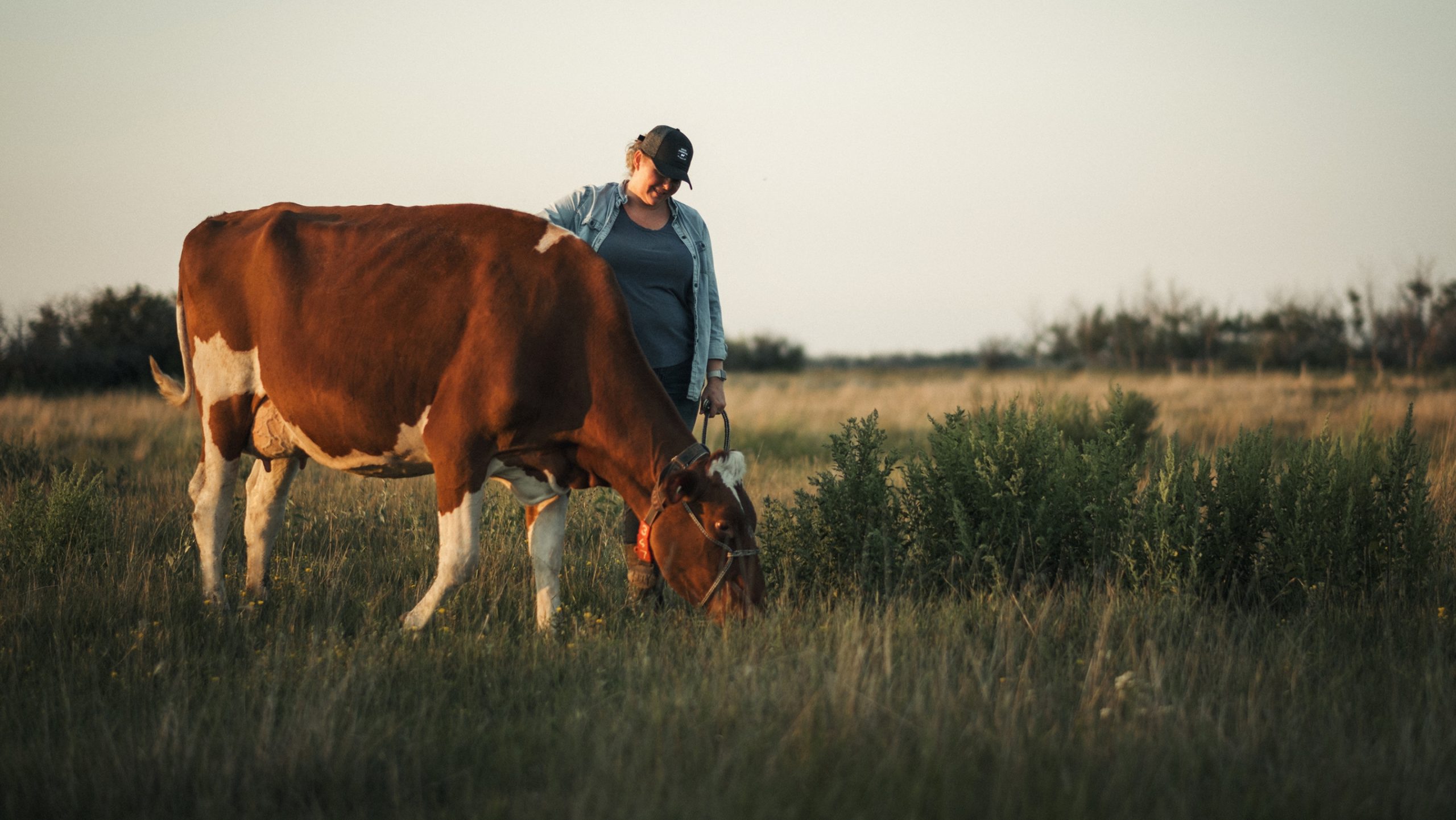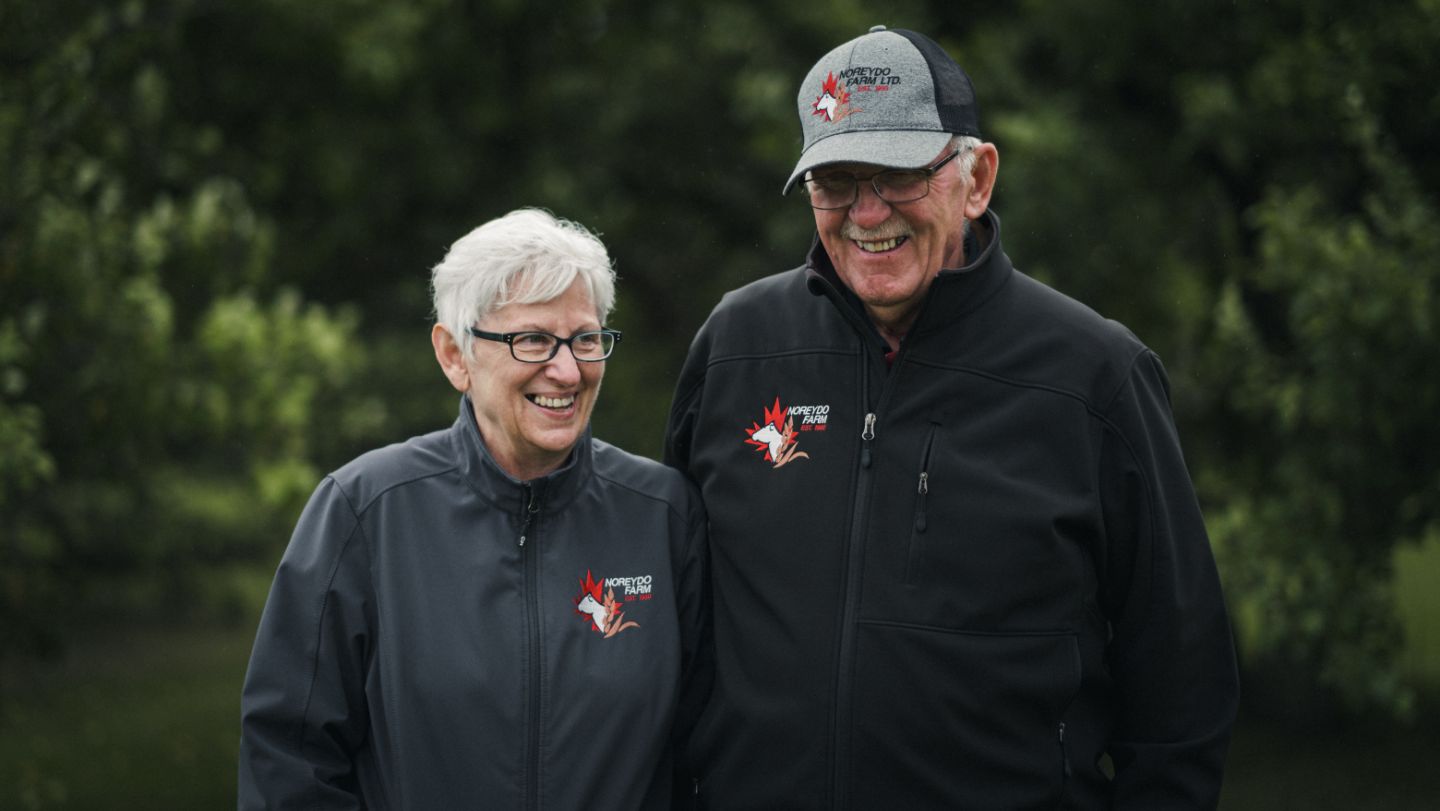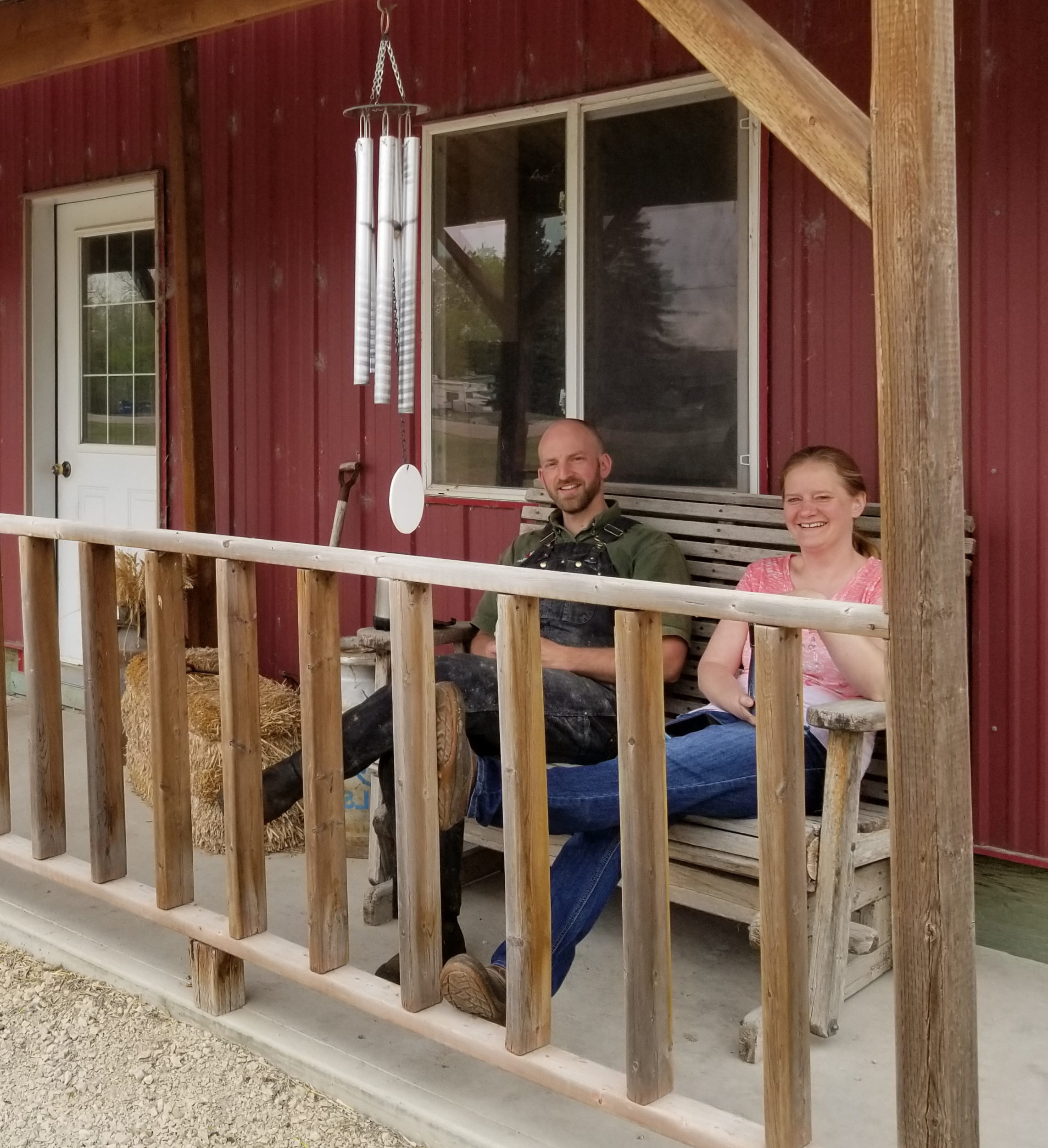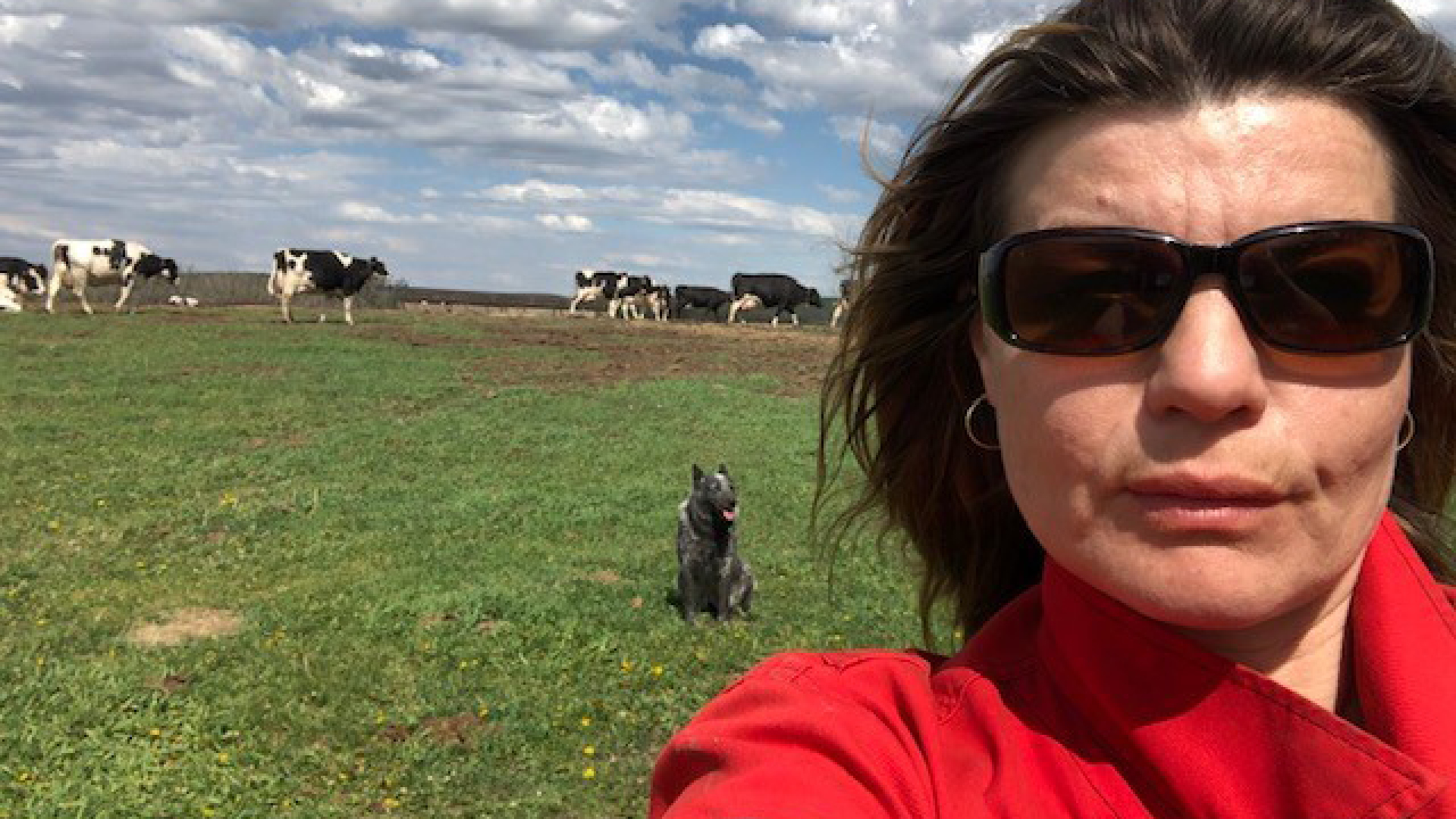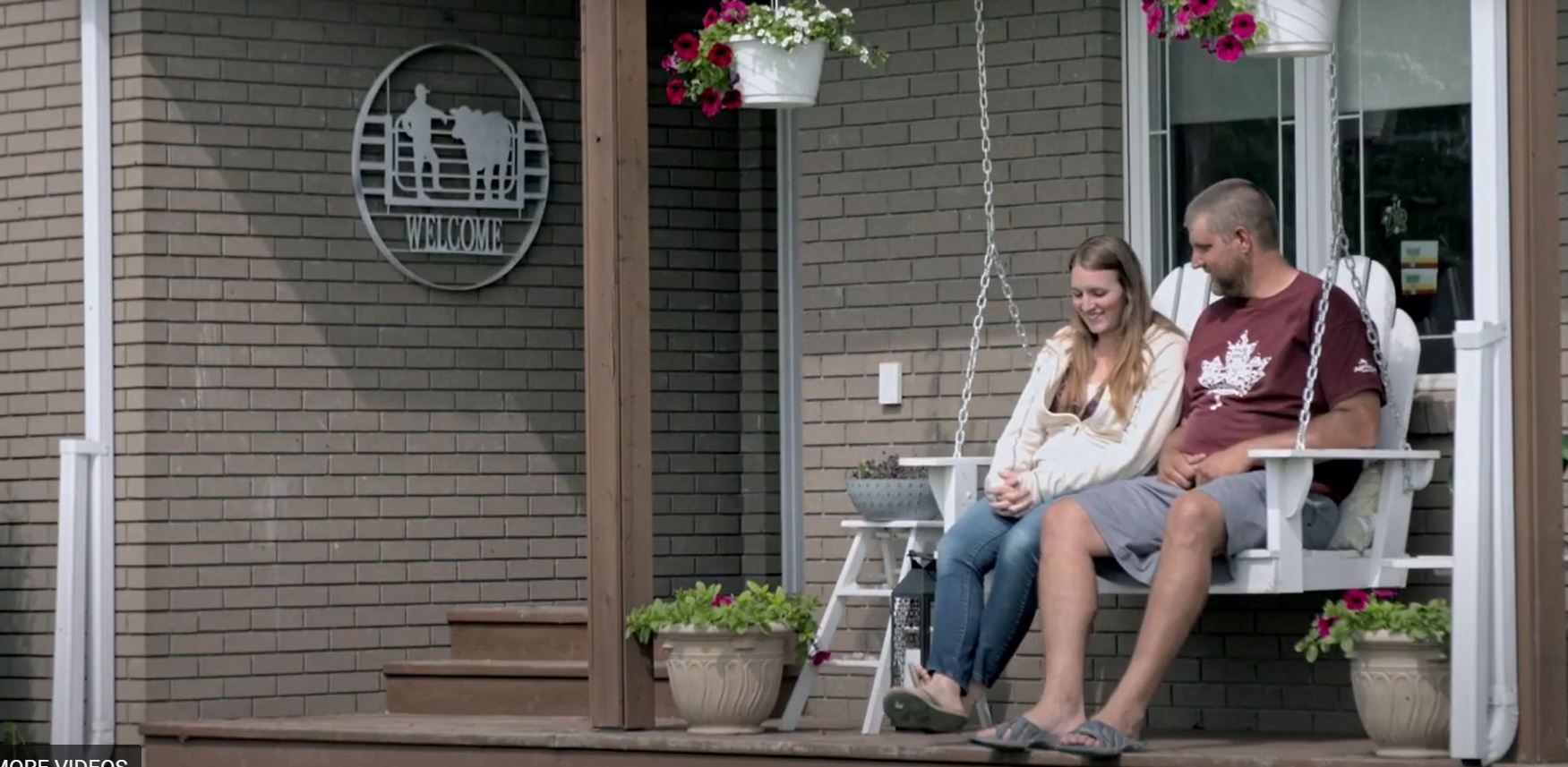Local dairy farmer returns to
Manitoba to an industry he loves
Growing up on a dairy farm in Landmark, Manitoba, Matt Plett had everything he wanted before him—fresh air, family, and a farm. He loved working with animals and being a part of his tight-knit rural community.
However, at 12, his father sold the dairy farm and within a few years the family made a decision to move to the United States. His stepmother had accepted a job as a nurse in Central Point, Oregon – following an American campaign to attract Canadian nurses. So, Plett, who only ever knew Landmark and his farm community, began life anew with his family at age 15.
“It was very challenging,” says Plett, now 40. “I had grown up in the same town my whole life. My baseball team, hockey, Sunday school—it was the same dozen guys and we were all very, very close.”
However, with the benefit of time, Plett did grow to appreciate his two years spent stateside, explaining how it made him grateful in a new way to what his childhood in Manitoba was all about.
“It was good to expand my horizons and see something different and experience different cultures,” he says. “At the same time, my sense of appreciation for time, people, [and] places were heightened.”
And, just as he planned, upon high school graduation, Plett returned to Manitoba and enrolled at the University of Manitoba to study agribusiness and animal science. He quickly landed his first job at Landmark Feeds in 1999.
He had a great job, a romantic relationship, and was back with his childhood friends and family. There was just one nagging void in his life—a farm.
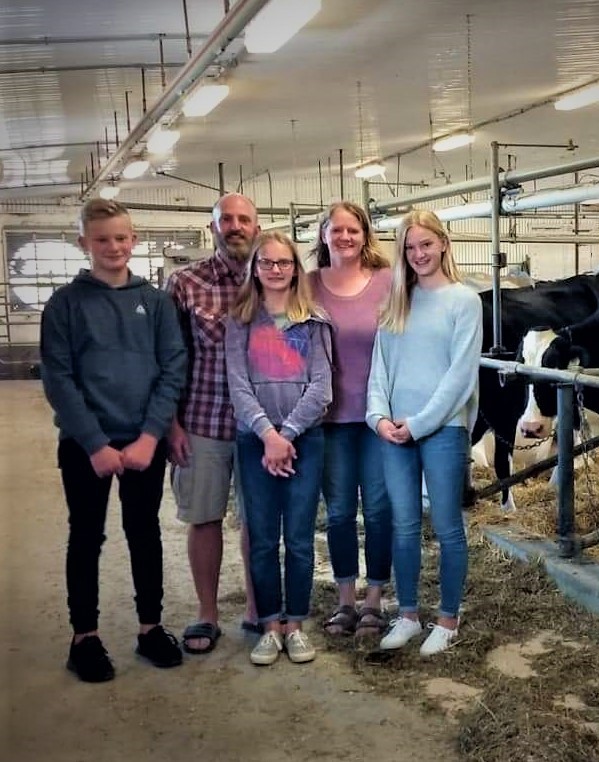
It’s a great way to raise a family and it’s a rewarding way of life
Plett had a secret dream that if his old family farm ever came up for sale, he would buy it back.
Every couple years, Plett stopped in at the farm owner’s property to remind the landowner that should he ever want to sell, there was a buyer all ready.
The benefit of time was on the side of young Plett and, one fall day in 2006, he received a phone call. The owner was approaching his golden years and inquired to see just how serious Plett was. As it turned out, plenty serious. The two worked out equitable terms and made a sale.
Within nine months, Plett and his wife Tanya went from no farm to owning a 45-cow dairy farm. Oh, and they also had their second child during this chaotic period.
“It was a busy season of life, but it all turned out and I’m glad we did it,” says Plett.
Initially, their dairy farm had limited space with limited cash flow. So, their heifer calves (young cows) were sent to another farm to be raised until the Pletts slowly got their feet under them. The family was thriving, and the children were learning all about life on a dairy farm with a 24/7 education.
Another opportunity arose less than five years later as Tanya’s parents offered their nearby dairy farm at Blumenort to their daughter and son-in-law. Although initially not interested, after time spent in conservation with friends and family, they took the plunge.
“But because the opportunity fell in our lap, we felt that maybe that first chapter was done,” says Plett.
The barn setup has allowed them to efficiently produce milk, while continuing to maintain a high level of animal care through three milking sessions each day.
Through farming, Plett is grateful for the opportunity to provide his family with a lifestyle he believes in and where thousands of Canadians can enjoy the fruits of his labour.
“I didn’t look at farming as a get rich quick scheme, because it’s not,” he says with a laugh. “It’s a great way to raise a family and it’s a rewarding way of life. Our work in getting milk to the marketplace is obviously very important and it’s been quite rewarding.”
What Plett finds most rewarding of being a dairy farmer are closely related to the values he holds and ultimately want to pass on to his children, like how a farm is a great place to teach children the value of work, building something, and the value of being productive as a family.
“The fact that farming has been in our families for generations gives our children, and us, a sense of time, place, and purpose. They can see the connection to land and buildings that their ancestors used to make a living, which are still being used by our family today,” he says. “Many of our cow families still descend from a brood cow that my father-in-law purchased 40 years ago. To see the cycle of life from a heifer calf being born, to standing beside her great granddaughter in the barn is a constant reminder that rewarding things take time.”
-
A story about Manitoba
Here is a story about Manitoba. A beautiful everyday story that celebrates our people, our pride, and our potential.
-
Hold on to your hat
As Norbert says, winter gives the land some time to rest.
-
Milestones
On Jamie’s Manitoba dairy farm, building a new barn was a milestone that helped set up his farm and family for a brighter future.
-
Love of the land
Sean’s family has been farming the same land for over a century. Over that time, each generation – Sean being the sixth – has done what they can to leave the farm and the land in the best possible condition for the next the generation.
-
Stories from a fourth-generation dairy farm
For the Philippots, dairy farming runs in the family and has for over 100 years, spanning four generations.
-
It’s all about the cows
From the beginning, Lanna was taught that the cows are here for a reason. Always respect them. Treat them well because the cows are here for you.
-
Noreydo Dairy Farm
Alongside his seven siblings, Norbert Rey was raised on a family farm in St. Claude, Manitoba. His father had been raised in an orphanage since the age of 9 and working on a dairy farm for room and board before moving to St. Claude where he met and settled with Norbert’s mother. “I had an […]
-
Local dairy farmer returns to
Manitoba to an industry he lovesGrowing up on a dairy farm in Landmark, Manitoba, Matt Plett had everything he wanted before him—fresh air, family, and a farm.
-
“I owe it to my grandmother”
A stone’s throw from Holland, Man., you’ll find Marianne Parvais on her quaint 200-herd dairy farm.
-
Finding the balance
Kristy-Layne & Richard raise kids and cows on their Manitoba farm. Operating a dairy farm is time consuming work.
